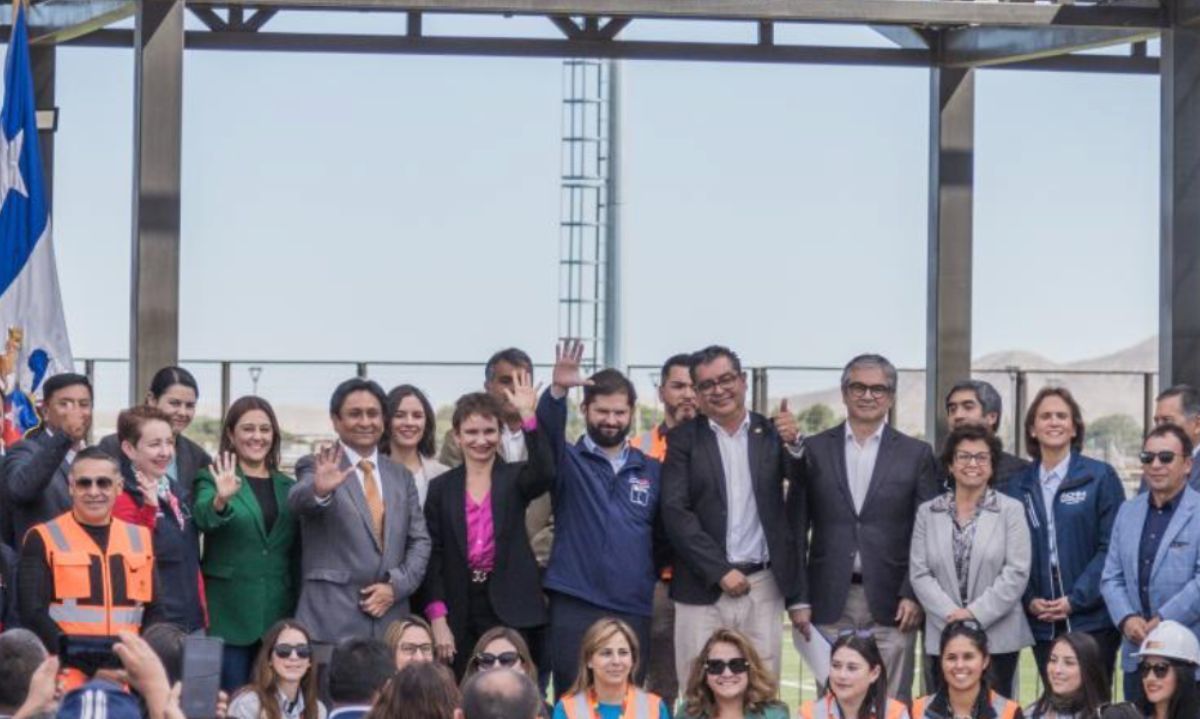
The Head of State celebrated the transfer of over 93 billion pesos thanks to the Mining Royalty Law: "307 communes in the country will have fresh resources available, which will be decided in each territory, to address the urgencies and priorities that you define"
This Tuesday, the chilean president Gabriel Boric Font, led the ceremony for the transfer of funds from the Mining Royalty Law from Calama. This involves transfers of over 93 billion pesos to 307 communes in Chile, which began on Friday, April 12th.
The President, alongside various government officials and local representatives, celebrated the initiative, emphasizing that 307 communes will receive additional resources to address their urgent needs and priorities.
"It has been rightly said historically that copper is Chile's salary, and we want this salary to reach everyone, with special emphasis on the communes that have been neglected or face greater budgetary difficulties and also those where mining operations take place," added the Head of State.
The Mining Royalty Law, approved in 2023, created two funds: the Territorial Equity Fund (FET), aimed at bridging resource gaps between municipalities, and the Mining Communes Fund (FCMI), to compensate for externalities of mining activity in communes of mining regions.
The $93.6 billion transferred starting from Friday will benefit over 12 million inhabitants of 307 communes across Chile. These additional resources correspond to nearly 50% of what is expected to be collected through the Mining Royalty.
The Antofagasta Region will receive over 6.2 billion pesos. The commune of Calama will receive over 2.1 billion, joining others such as Andacollo, Catemu, and Cabildo whose local budgets will increase by over 15%.
"Municipalities are the first face of the State," assured the President, adding, "They are the closest entity to residents in terms of all state infrastructure: health centers, streets, squares, or garbage collection. Therefore, it is important for municipalities to be strengthened and have resources. That is why we chose to decentralize and have these resources go directly to communes and regions instead of centralizing everything and deciding it in Santiago."
Finance Minister Mario Marcel also highlighted that the resources allocated to municipalities will allow investment in the most urgent needs of communities: "We were very insistent, along with the Association of Municipalities, in highlighting that the reality of Chile's communes is very heterogeneous, and the idea that is somewhat ingrained in our DNA, unfortunately, of treating all communes equally was not a good idea, so we ended up with this formula that allows free availability."




